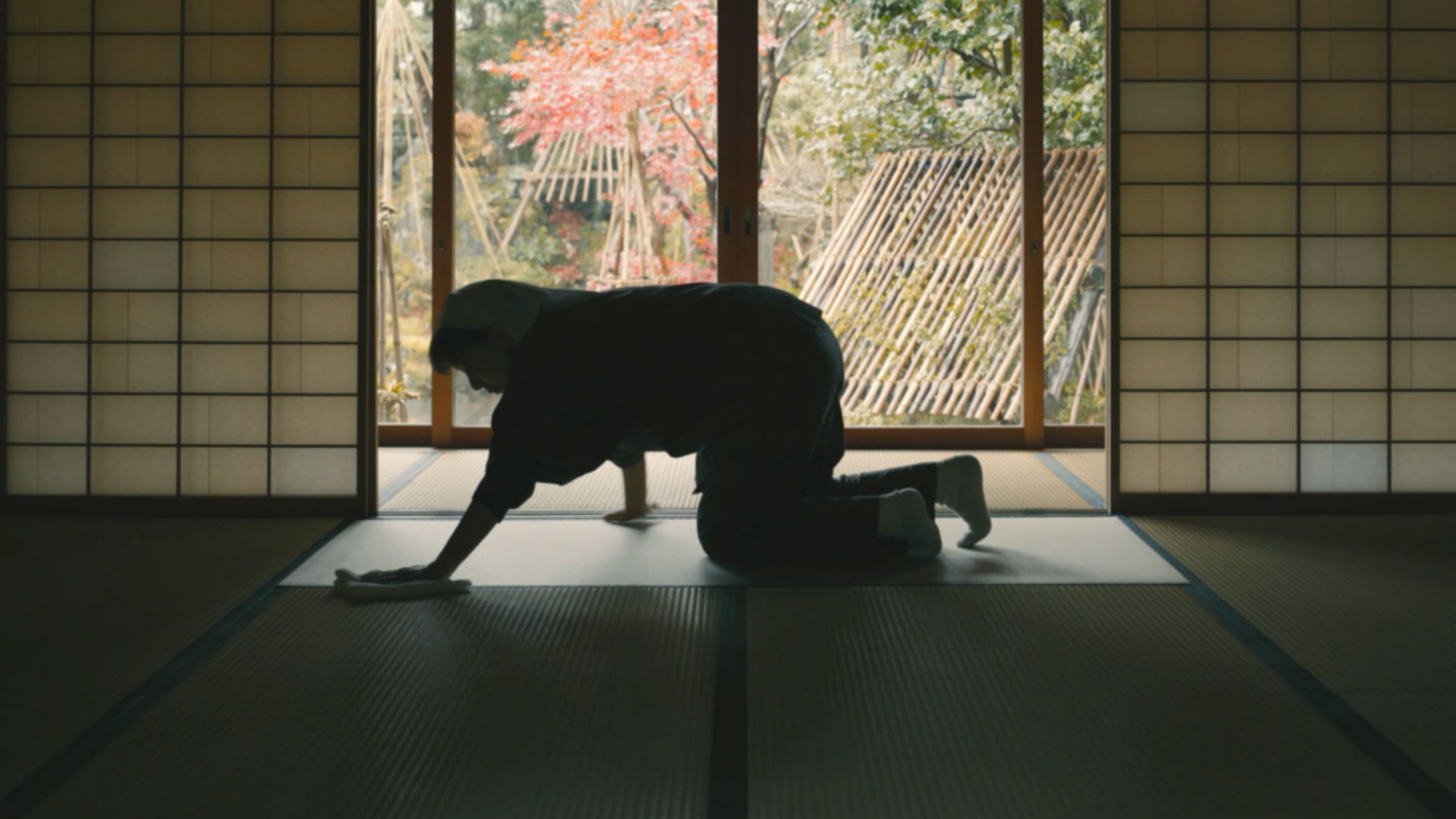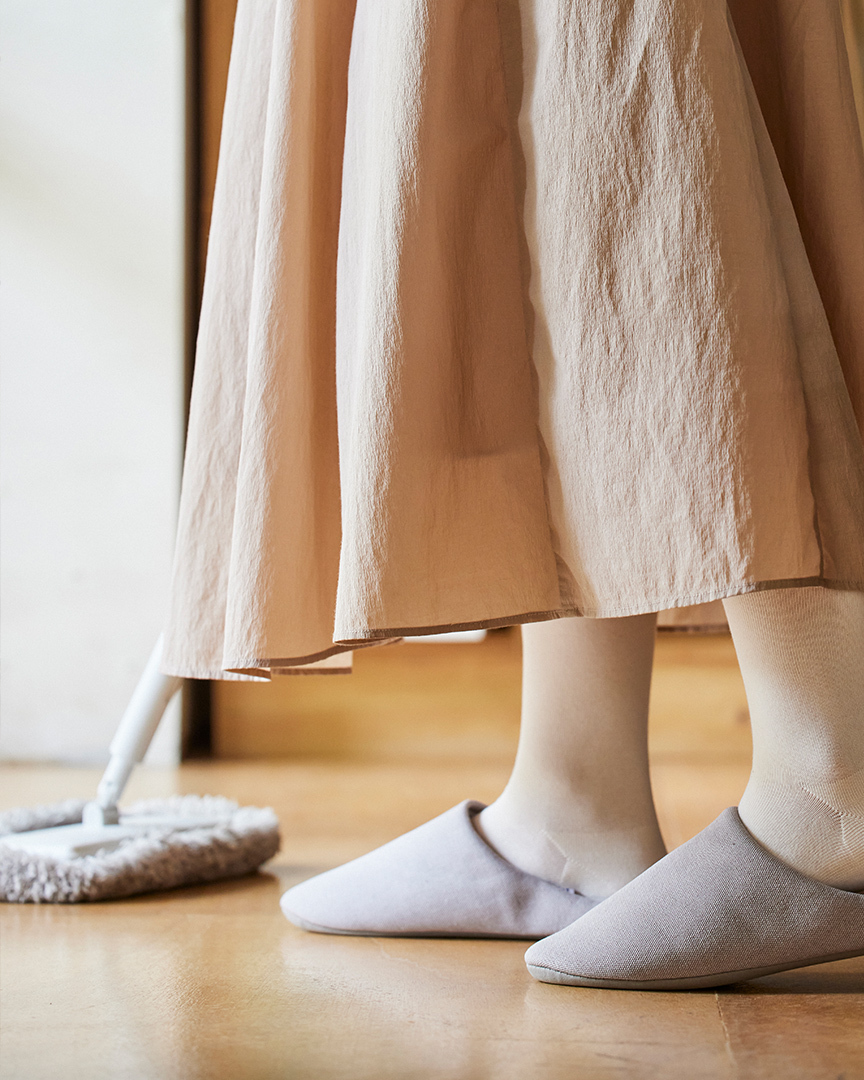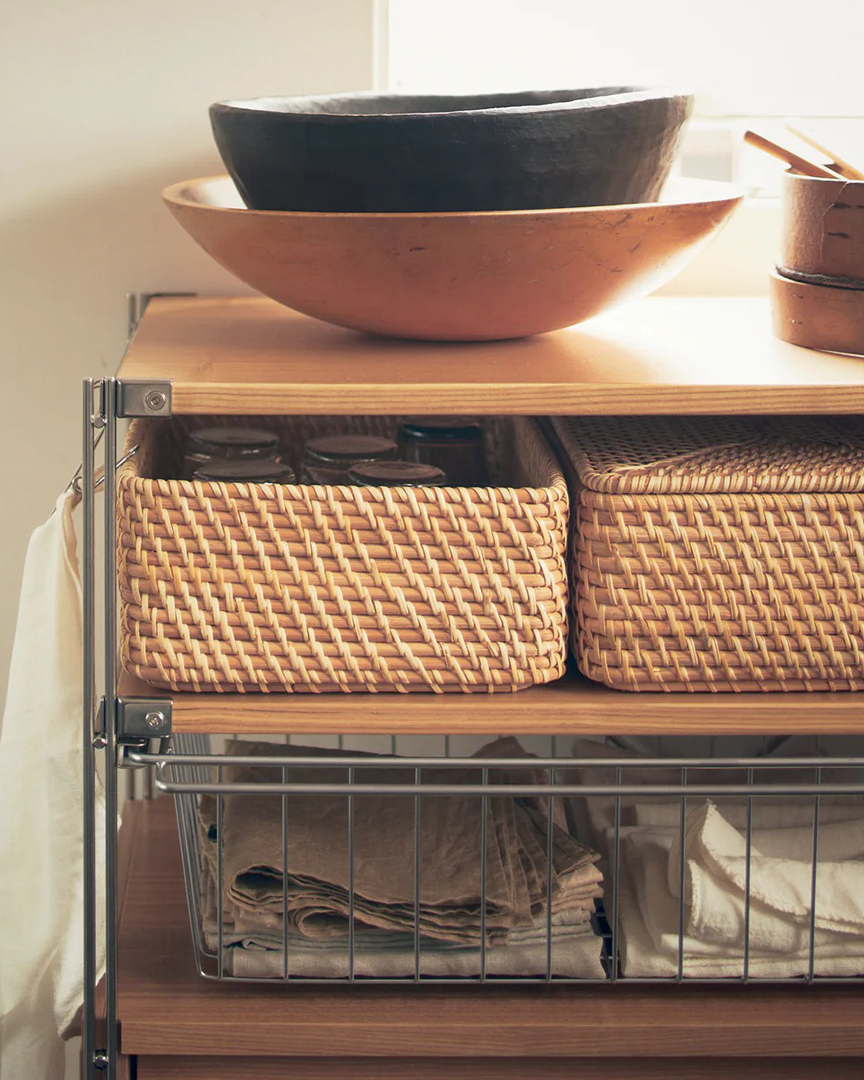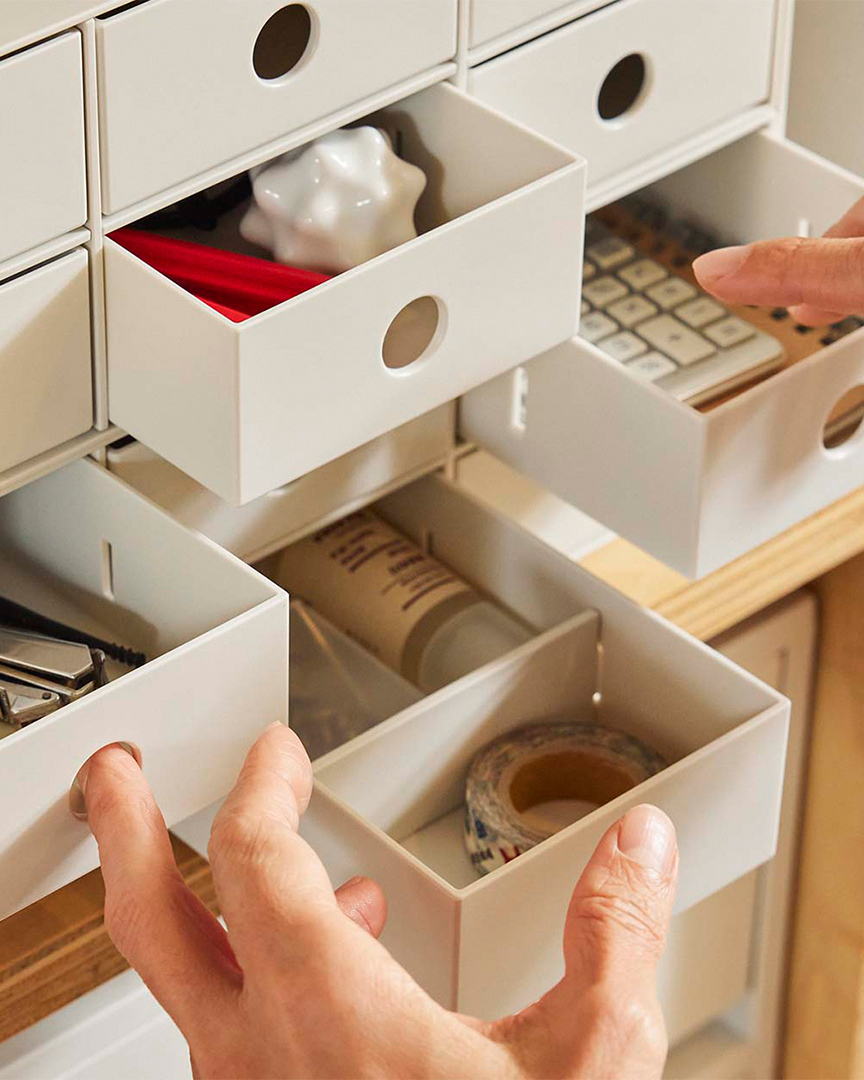
KEEP CALM AND DECLUTTER
Tidying and cleaning is part of being human. Even better: these conscious acts on our environment can be a source of peace... as long as we don't overdo it. At MUJI, we believe deeply in this harmonious balance within the home. Dive into the history of an age-old ritual that cleanses the home as well as the mind.
Declutter. Clean up. Organise. If these words make you feel both anxious and peaceful, you're definitely human. Because that's precisely what separates us from other species: unlike animals, we control nature by acting on it. In Japanese, the environment that has been modified by humans according to their needs is written as “人工”, literally “human+ work/craft/ingenuity”, and translated as “man-made”. And in this conscious action on the outside, it's all a question of balance - if we let one side weigh more than the other, we risk either a ‘wild’ invasion of clutter and dust, or an overly artificial space that distances us from nature... and from our own.

Pleasant, somehow - MUJI
Less stress, more well-being
From the most meticulous people to those who thrive on chaos, there is one consistency: a clear correlation between disorder and anxiety. According to a research,1 women living in disorder had higher levels of cortisol, the stress hormone. Why? ‘A cluttered space acts as a constant reminder of unfinished tasks, leading to cognitive and emotional overload,’ explains psychologist Rachel Hoffman.2 Moreover, an orderly space could boost vitality and longevity - even for the elderly.3 Over the past few years, a whole series of research studies on stress, life satisfaction, physical health and cognitive faculties have demonstrated the value of tidying up.4 Of course, these benefits have been greatly popularised by Japanese expert Marie Kondo5 and her method of ‘joy-based’ decluttering. According to the Journal of Environmental Psychology6, getting rid of useless objects even creates a feeling of renewal, symbolising a new start... And Home Organiser Myriam Portais explains how these habits can have unexpected consequences: a clean kitchen leads to better eating habits, a tidy bedroom encourages good sleep, proper organisation improves finances by avoiding unnecessary purchases... and the whole thing boosts our self-confidence.7
#Cleantok, the excess phenomenon
Recently, this positive philosophy of tidying up has gone up a notch. Millions of us now relax watching... cleaning videos by influencers like Auri Katariina. Blame it on the world's chaos? In September 2024, an article in the Guardian8 highlighted the explosion of the #Cleantok hashtag, the housework segment of TikTok, which had topped 110 billion. At first sight, a rather positive phenomenon. However, like so often with social networks, perfectionism is pushed so far that it becomes unattainable - and the perfect house becomes a source of anxiety. Marie Kondo herself, now a mother of three, admitted in an interview9 that she was ‘’loosening up a bit‘’ on her demands.
A matter of harmony... and a Japanese tradition
There's no need to be at risk of burnout - again, we're back to the delicate balance on which this article began. At MUJI, we offer products that promote organisation and cleaning as a beneficial habit, and a cultural heritage: in Japan, cleaning has always been seen as a way of cultivating the mind, from classrooms cleaned by pupils to the ‘active’ meditation of Buddhist monks. In his book,10 Tokyo-based monk Shoukei Matsumoto explains how this age-old tradition in the Land of the Rising Sun ‘frees the mind and allows you to feel at peace with your surroundings’.
A symbolic act around the world
We are so inspired by order and cleanliness as a harmonious balance between humans and their space that in 2019 we travelled the world for our Cleaning photography book.11 Over 500 pages, Kenya Hara, MUJI's artistic director, explores the concept from every angle. From a child sorting his toys to a violinist delicately cleaning her instrument and the impressive scrubbing of a ship, each case is treated in the same way by the lens - with a sweet, deep fascination. Images that remind us that the very essence of human beings lies dormant in the ordinary work of cleaning, which transcends culture and civilization.
Pleasant, somehow - MUJI See full campaign
Cleaning & Storage
1. No place like home, 2010. 2. Unf*ck your habitat, Rachel Hoffman, éd. Bluebird, 2016. 3. House cleaning keeps the elderly healthy, 2015. 4. 5 Reasons Why Clutter Is Bad for Your Mental Health, 2017. 5. The Life-Changing Magic of Tidying Up, Ten Speed Press, 2014. 6. Home and the extended-self, 2021. 7. Ménage de printemps : une experte nous révèle ses 10 bienfaits sur la santé mentale, Vogue, 2024. 8. ‘Put down the duster’, Amelia Hill, 2024. 9. Le désordre ? Marie Kondo apprend à vivre avec., Courrier International, 2023. 10. A Monk's Guide to a Clean House and Mind, ed. Penguin, 2018. 11. Cleaning, Kenya Hara, éd. Lars Müller, 2020.










